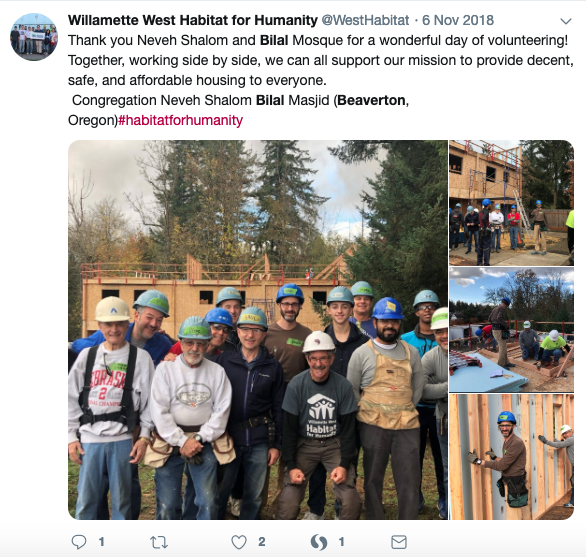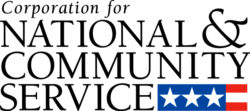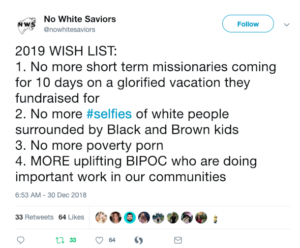
From February 2001 through much of February 2005, I worked at the United Nations Volunteers (UNV) program, managing the UN’s Online Volunteering service (formerly NetAid) and the United Nations Information Technology Service (UNITeS), an initiative created by then Secretary General Kofi Annan. UNITeS promoted the importance of engaging volunteers in information and communications technologies for development (ICT4D) activities and supported volunteers engaged in ICT4D initiatives. The UNITeS staff worked from the premise that a key to getting communities, government, civil society and individuals in developing countries to leverage computers and the Internet so that they benefit from their use was to involve volunteers in introducing the tech, building people’s capacity to use it, supporting digital literacy, etc.
UNV places and supports thousands of highly-skilled people throughout the world to undertake a variety of highly-skilled work: HIV education, providing medical care, managing schools, training teachers, managing a government office’s communications, being apart of Ebola response, and on and on. When a placement would get approved for a UN volunteer to work on a project that related somehow to computers or the Internet, there was a program manager for a particular region who would come to my office, per my association with the UNITeS initaitive, hand me the Terms of Reference for the volunteer placement and say, “UNI-Tize this.”
What she meant was this: add in required skills and responsibilities that justify this being done by someone under a UN Volunteers contract, rather than another type of UN contract that would require the payment of more money to the person that fills the position and the designation of that person as a consultant or staff member.
I’ve long believed that any organization that recruits volunteers, for whatever reason, must have a written statement that explains explicitly why that organization reserves certain tasks / assignments / roles for volunteers. The thousands of experts that are recruited and placed by UNV all over the world, working at a variety of agencies (mostly UNDP), in a variety of areas, are called UN Volunteers, or UNVs, but often, there’s not much to show that they are volunteers, especially given the generous financial compensation UNVs receive. The vision of UNV – as well as other volunteer-sending organizations like Peace Corps and VSO – is that the people that are volunteers through their programs are NOT necessarily people who are career humanitarians; rather, the volunteers are professionals willing to give up six months to two years of their jobs/careers and the compensation that would come with such and, instead, work as a part of a humanitarian endeavor. But I’m sorry to say that, for many agencies, involving people under UNV contracts is a way to save money, as such contracts are far, far cheaper than hiring someone as an employee or consultant outright.
When that UNV program manager gave me those TOS to “uni-tize,” I went through and added responsibilities regarding
- building the capacities of local counterparts regarding whatever it was he or she was doing, with an eye to this UNV position becoming unnecessary as local people take over. I treated every UNV placement that was “Uni-Tized” as one that would eventually be taken over by a full-time, paid local person NOT under a UNV contract, and for that to happen, local capacity had to be built.
- creating at least one, local event that could help build the skills of community members regarding some aspect of computer and Internet use: where to find information about current market prices for agricultural products, where to find reliable maternal health information, how to evaluate the credibility of online information, etc. In this case, “Uni-Tize” meant to evangelize regarding ICTs for various development activities (ICT4D).
- suggestions to involve local volunteers in their work in some way, reaching out to students at nearby universities, or at home on leave from university, to help them gain experience that would help in their future careers. In this case, “Uni-Tize” meant to get local volunteers invested in the work of UNVs in some way.
- suggestions to make particular efforts to reach out to women, girls, religious and ethnic minorities and people with disabilities in any of the above aforementioned activities, to take all of the tasks beyond merely getting tasks done.
I have to admit I loved looking up from my desk and seeing her standing there with a printout of a Terms of Reference in her hand, or getting an email from her for help to “Uni-Tize” an assignment. It was always challenging to really think about what would make the assignment worthy of the word volunteer. To me, my additions made those UNV placements fully justified in using the word “volunteer” to describe their work, to show that this was more than just a job that had a UNV contract.
I’ve said it before, I say it again: create a mission statement for your organization’s volunteer engagement that explicitly says WHY your organization or department involves volunteers. Such a statement will guide employees in how they think about volunteers and guide current volunteers in thinking about their role at the organization. It will help your organization avoid the reputation for being just a low-cost staffing solution – something no volunteer really wants to be a part of. Here’s more about my philosophy regarding justifying volunteer engagement and making certain roles volunteer instead of paid.

If you have benefited from this blog or other parts of my web site and would like to support the time that went into researching information, developing material, preparing articles, updating pages, etc. (I receive no funding for this work), here is how you can help.
Also see:
- Make volunteering transformative, not about # of hours
- Why Should the Poor Volunteer? It’s Time To Re-Think the Answer
- Honoring volunteers engaged in economic & social development
- Kenya’s own in-country volunteering program for young people
- Volunteering empowers, activates, builds, communicates
- Volunteer engagement is MUCH more than just HR management
- History & Evaluation of UNV’s Early Years
- Misconceptions re: VSO, UNV & Peace Corps
- I’m thrilled with UNV’s 2015 State of the World’s Volunteerism Report – Transforming Governance
- UNV announces Online Volunteering Award 2015
- Short-term deployments with Peace Corps & UNV
- Initial feedback on UNV plan to integrate volunteerism in development
- Pioneering Internet Initiatives Deserve To Be Remembered
- research on why NGOs recruit international volunteers
- What effective short-term international volunteering looks like
- UN mobilizes volunteers to research contribution of volunteerism in fragile communities and post-conflict environments





 The pushback against voluntourism – where Westerners pay large amounts of money to go to another country for a few days or weeks and engage in an activity they believe is helping people in some way with just a few hours of volunteering – seems to be getting more intense, judging from what I’m seeing online. I’m now not the only one posting about the dark side of voluntourism on sites like Quora and Reddit – which is so different from 10 years ago, when I felt like the lone voice on sites like YahooAnswers, and on my own web site, begging people not to support voluntourism.
The pushback against voluntourism – where Westerners pay large amounts of money to go to another country for a few days or weeks and engage in an activity they believe is helping people in some way with just a few hours of volunteering – seems to be getting more intense, judging from what I’m seeing online. I’m now not the only one posting about the dark side of voluntourism on sites like Quora and Reddit – which is so different from 10 years ago, when I felt like the lone voice on sites like YahooAnswers, and on my own web site, begging people not to support voluntourism.


 In the winter of 1996, I started a new job, directing
In the winter of 1996, I started a new job, directing